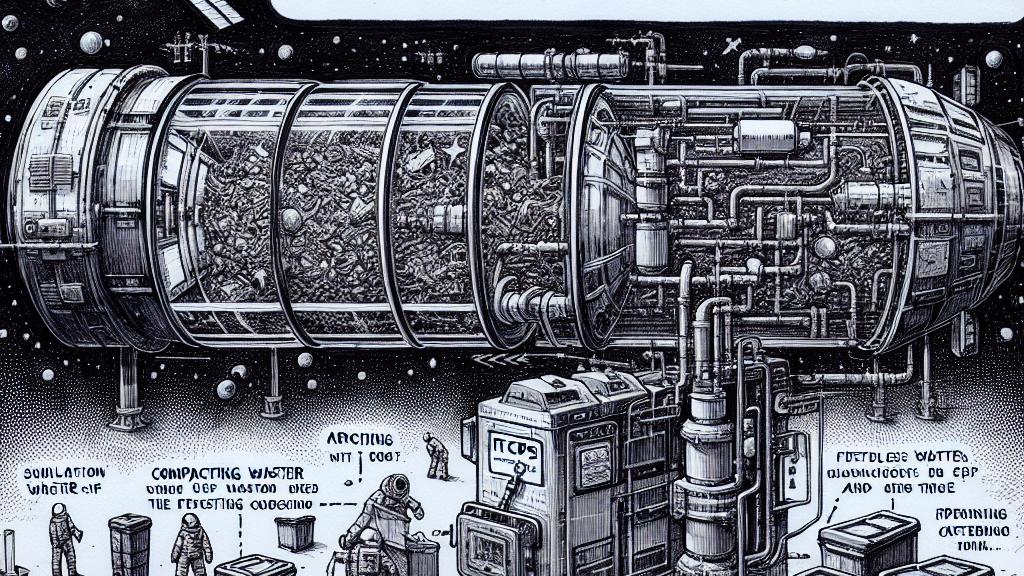Innovative Trash Compactor Set for Space Station Testing
Overview
- Sierra Space is poised to launch a revolutionary trash compactor for testing aboard the ISS in 2026, promising a new era in waste management.
- This cutting-edge compactor can reduce waste volume by an astonishing 75%, making life simpler for astronauts and enhancing sustainability.
- The implications of this innovative technology extend far beyond the ISS, potentially altering the future of deep space exploration for years to come.

Introducing the Groundbreaking Trash Compaction and Processing System
Prepare for a significant shift in how astronauts manage waste in space! In 2026, the International Space Station (ISS) will test the Trash Compaction and Processing System (TCPS) developed by Sierra Space. Picture this: reducing the volume of garbage generated by the crew by an impressive 75%! Currently, astronauts face the tedious task of bagging their waste, temporarily storing it, and then loading it onto resupply vehicles that incinerate the trash upon re-entry to Earth’s atmosphere. Not only is this process cumbersome, but it also raises environmental concerns. With the TCPS, astronauts will compact waste efficiently, reclaim water, and extract gases for reuse—transforming how we think about waste management, especially for upcoming missions to the Moon and Mars.
Addressing Waste Management Challenges in Space
As we embark on longer journeys into space, managing waste effectively becomes essential. Consider this: a crew of four can generate approximately 2,500 kilograms of waste during a year-long mission! Current methods, which rely on astronauts manually processing trash, simply won’t suffice for extended missions beyond low-Earth orbit. Enter the TCPS, which not only significantly shrinks waste into manageable solid blocks but also offers an ingenious dual purpose: these blocks can serve as radiation shielding, providing an important safety feature during space travel. Tom Vice, the CEO of Sierra Space, put it best: in the vacuum of space, every ounce of material is critical for missions' success. Thus, efficient waste management becomes paramount—not just for convenience, but for the health and safety of astronauts.
Pioneering the Future of Space Missions with TCPS Technology
The implications of the TCPS stretch far beyond its initial deployment aboard the ISS; it symbolizes a broader commitment to sustainable space exploration. Imagine a scenario where astronauts can convert waste into precious resources, such as treating waste to reclaim water for drinking and food. This innovative approach to trash could redefine how humans travel far beyond Earth. As we aim for the ambitious goals of Mars exploration and beyond, the TCPS stands at the forefront of that quest, underscoring the vital need for responsibility and resourcefulness in space endeavors. Therefore, succeeding with this technology won't just enhance mission efficiency; it could revolutionize the entire landscape of human spaceflight, opening the door to greener and more sustainable practices in our quest to explore the final frontier.

Loading...